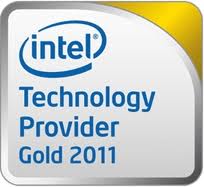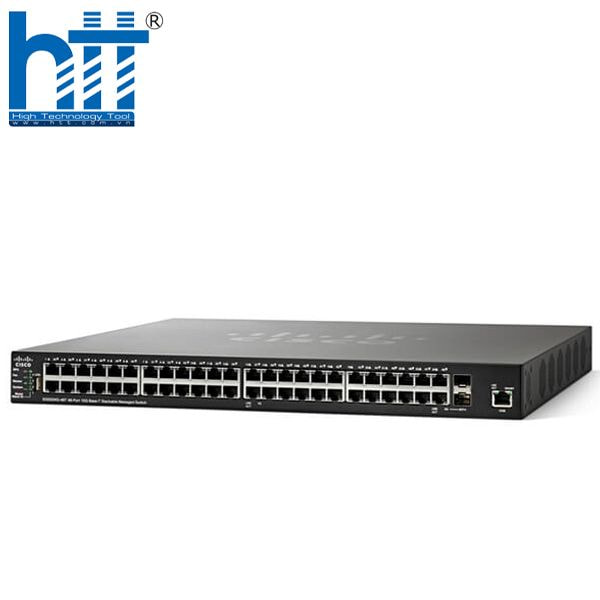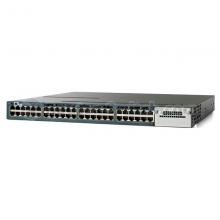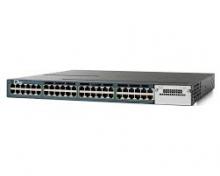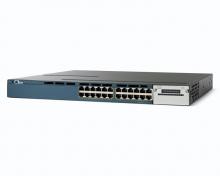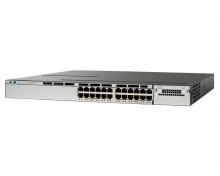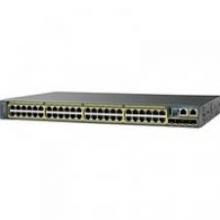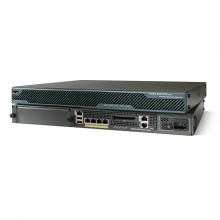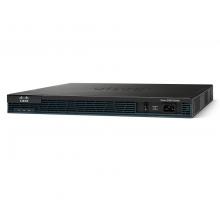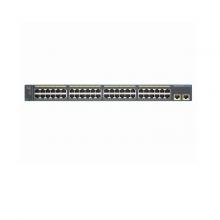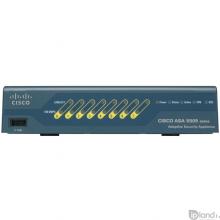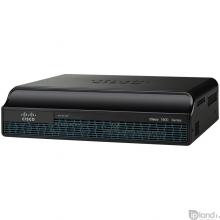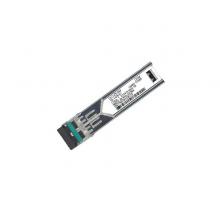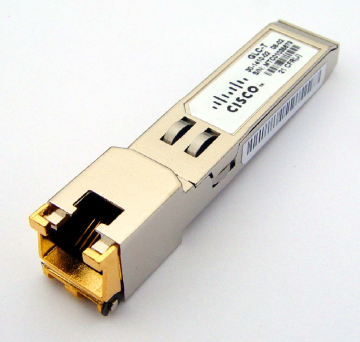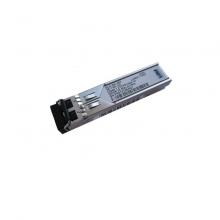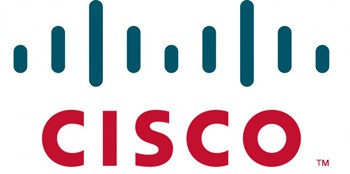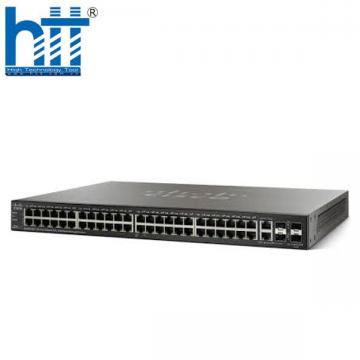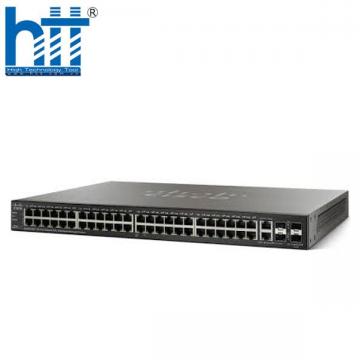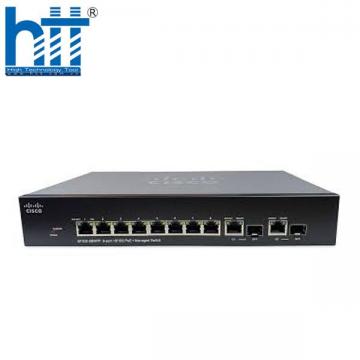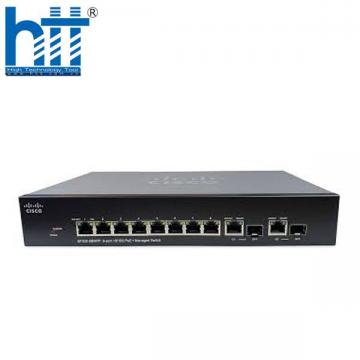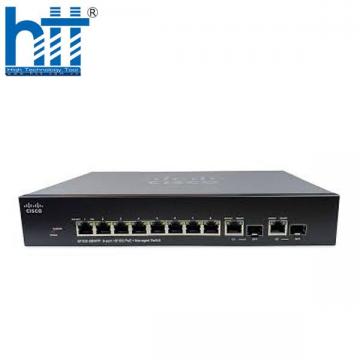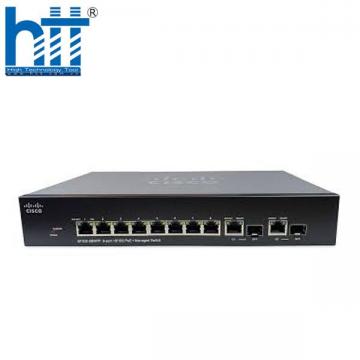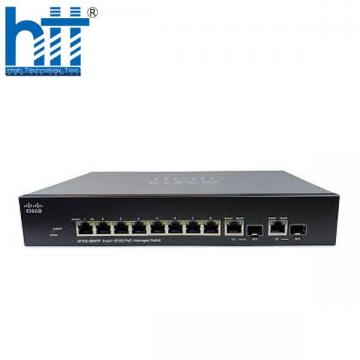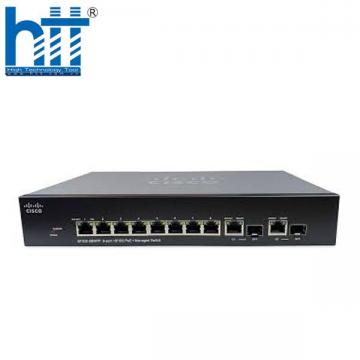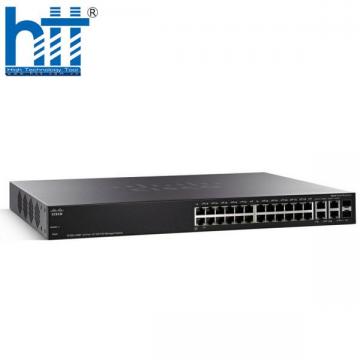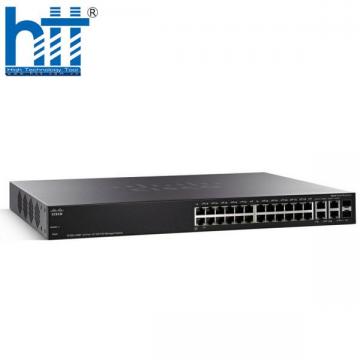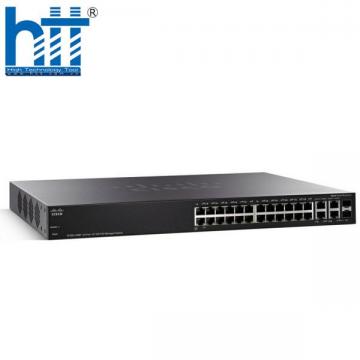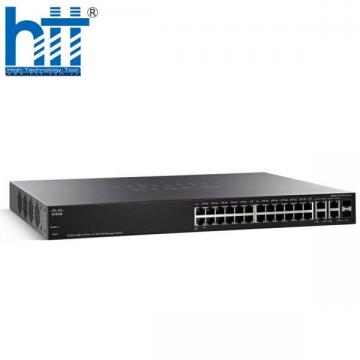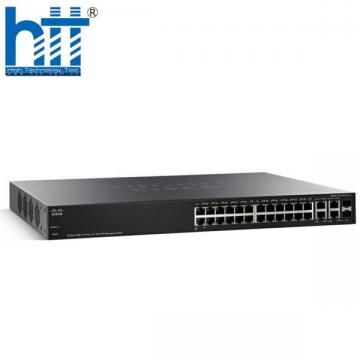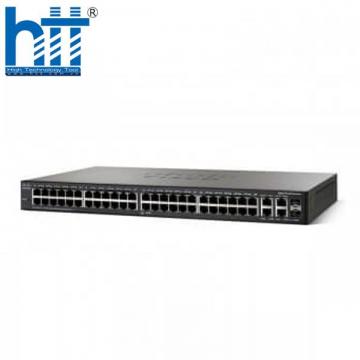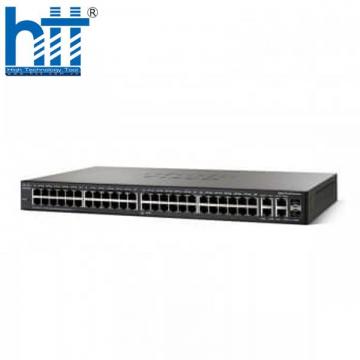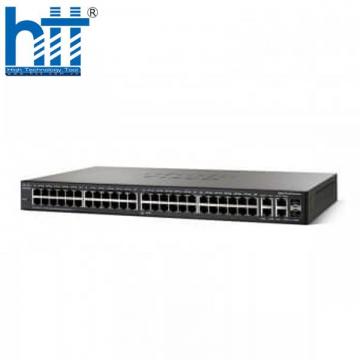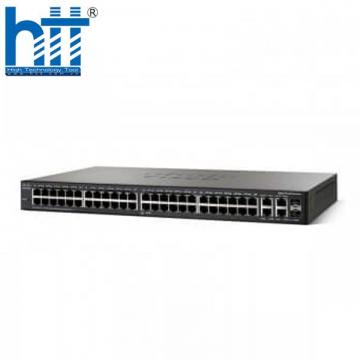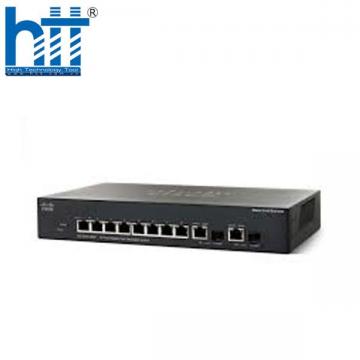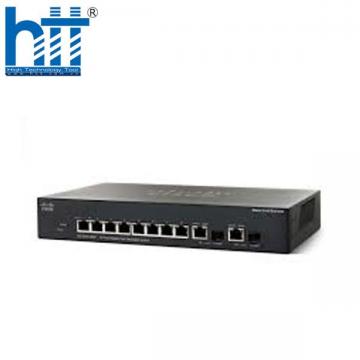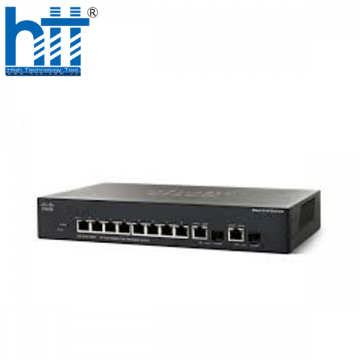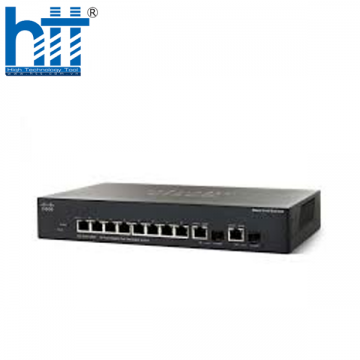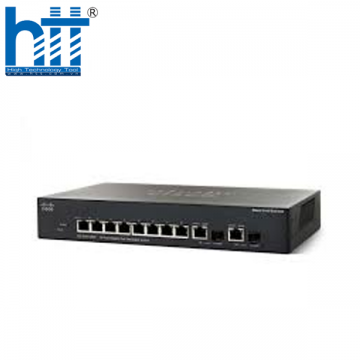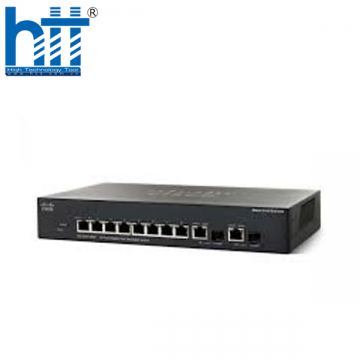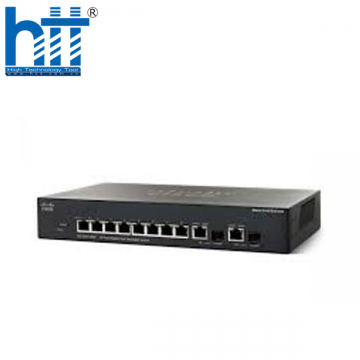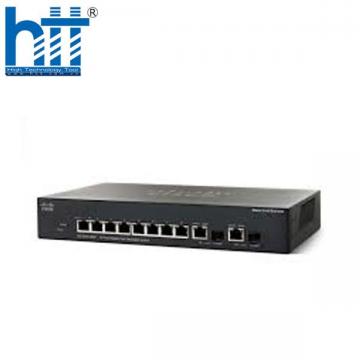|
Doanh nghiệp của bạn đang mở rộng hạ tầng mạng, cần một thiết bị switch mạnh mẽ, băng thông lớn, quản lý hiệu quả và đáng tin cậy? Switch Cisco SG550XG-48T chính là giải pháp lý tưởng giúp bạn xây dựng một hệ thống mạng tốc độ cao, ổn định và dễ dàng triển khai. Hãy cùng Hợp Thành Thịnh tìm hiểu chi tiết về sản phẩm nổi bật này.
1. Tổng quan về Switch Cisco SG550XG-48T
Cisco SG550XG-48T là một trong những thiết bị chủ lực thuộc dòng Cisco Small Business 550X Series – chuyên dành cho các doanh nghiệp vừa và nhỏ muốn triển khai mạng 10 Gigabit. Thiết bị sở hữu:
- 48 cổng 10GBase-T (10 Gigabit Ethernet)
- 2 cổng combo SFP+ (hỗ trợ cáp đồng hoặc cáp quang)
- 1 cổng quản trị Gigabit Ethernet
Với thiết kế hiện đại, hỗ trợ hoạt động ở cả 3 lớp mạng (access, distribution, core), SG550XG-48T phù hợp cho mọi quy mô mạng doanh nghiệp.
2. Tính năng nổi bật
2.1 Tốc độ cao – sẵn sàng cho các ứng dụng dữ liệu lớn
Cisco SG550XG-48T mang lại hiệu suất 10G vượt trội, lý tưởng cho những môi trường mạng cần truyền tải dữ liệu lớn và liên tục như:
- Lưu trữ tập trung (NAS/SAN)
- Hệ thống camera giám sát độ phân giải cao
- Máy chủ ảo hóa
- Hạ tầng Wi-Fi công suất cao
2.2 Kết nối linh hoạt – dễ dàng mở rộng
Với 2 cổng SFP+ combo, switch cho phép kết nối cáp đồng hoặc cáp quang linh hoạt, thích hợp để làm uplink đến các switch tầng hoặc phòng ban khác. Thiết bị hỗ trợ MDI/MDI-X tự động, giúp loại bỏ việc phân biệt cáp thẳng hay cáp chéo.
2.3 Quản lý thông minh – bảo mật tối ưu
Cisco SG550XG-48T hỗ trợ:
- Web GUI dễ sử dụng
- Command Line Interface (CLI)
- Giao thức SNMP, RMON
Bên cạnh đó, switch còn tích hợp các tính năng bảo mật như:
- VLAN
- Danh sách kiểm soát truy cập (ACL)
- Bảo mật cổng (Port Security)
2.4 Hiệu năng ổn định – truyền tải mượt mà
Với các công nghệ:
- Address Learning and Aging
- Flow Control
Thiết bị giúp tối ưu hóa luồng dữ liệu, giảm thiểu nghẽn mạng và tăng độ ổn định cho toàn hệ thống.
3. Ứng dụng thực tế
Cisco SG550XG-48T phù hợp cho nhiều mô hình triển khai:
- Doanh nghiệp vừa và nhỏ cần mở rộng mạng LAN
- Phòng kỹ thuật, thiết kế, dựng phim cần tốc độ truyền tải cao
- Trường học, trung tâm dữ liệu mini
- Công ty đa chi nhánh với nhiều điểm kết nối camera, máy in, Wi-Fi
Liên Hệ Ngay Để Được Tư Vấn & Đặt Hàng
Liên hệ ngay với Hợp Thành Thịnh để đặc hàng và được tư vấn miễn phí. Ngoài ra Hợp Thành Thịnh còn cung cấp thêm các hãng như: Juniper Networks, HPE Aruba, TP-Link,...Không chỉ cung cấp sản phẩm, chúng tôi còn có dịch vụ sửa chữa chuyên nghiệp sau bảo hành cho các thiết bị như: Màn hình, thiết bị mạng, máy in, máy tính, máy chiếu, ups,... Đồng hành và hỗ trợ tận tâm cho các anh em kỹ thuật, IT, và các cửa hàng tin học.
Thông số kỹ thuật của switch Cisco SG550XG-48T
| General Information |
| Product Name |
SG550XG-48T 48-Port 10GBase-T Stackable Managed Switch |
| Manufacturer Part Number |
SG550XG-48T-K9-NA |
| Product Series |
550X |
| Product Model |
SG550XG-48T |
| Product Type |
Layer 3 Switch |
| Interfaces/Ports |
| Total Number of Network Ports |
48 |
| Uplink Port |
Yes |
| Modular |
Yes |
| Stack Port |
Yes |
| Port / Expansion Slot Details |
48 x 10 Gigabit Ethernet Network |
| I/O Expansions |
| Number of Total Expansion Slots |
2 |
| Expansion Slot Type |
SFP+ |
| Shared SFP Slot |
Yes |
| Number of SFP+ Slots |
2 |
| Media & Performance |
| Media Type Supported |
Twisted Pair
Optical Fiber
|
| Ethernet Technology |
10 Gigabit Ethernet
|
| Network Technology |
10GBase-T
10GBase-X
|
| Network & Communication |
| Layer Supported |
3 |
| Hardware |
| Console port |
Cisco Standard RJ45 console port |
| OOB management port |
Dedicated Gigabit management port for out-of-band management on SG550XG models |
| RPS |
RPS connector |
| USB slot |
USB Type-A slot on the front panel of the switch for easy file and image management |
| Buttons |
Reset button |
| Cabling type |
Unshielded twisted pair (UTP) Category 5 or better; fiber options (SMF and MMF); coaxial SFP+ |
| LEDs |
System, master, fan, RPS, stack ID, link/speed per port |
| Flash |
256 MB |
| CPU |
800 MHz (dual-core) ARM |
| CPU memory |
512 MB |
| Management & Protocols |
| Manageable |
Yes |
| Physical Characteristics |
| Unit dimensions (W x H x D) |
440 x 44 x 450 mm (17.3 x 1.7 x 17.72 in) |
| Unit weight |
7.43 kg (16.38 lb) |
| Power |
100 - 240V 47 - 63 Hz, internal, universal |
| Certification |
UL (UL 60950), CSA (CSA 22.2), CE mark, FCC Part 15 (CFR 47) Class A |
| Operating temperature |
32° to 122°F (0° to 50°C) |
| Storage temperature |
-4° to 158°F (-20° to 70°C) |
| Warranty |
| Limited Warranty |
Lifetime |
| Miscellaneous |
| Package Contents |
- SG550XG-48T Layer 3 Switch
- Power Cord
- Mounting Kit
- Serial Cable
- CD-ROM with User Documentation (PDF)
- Quick Start Guide
|
Các tính năng của Switch Cisco SG550XG-48T
|
Layer 2 Switching
|
|
Spanning Tree Protocol
|
Standard 802.1d spanning tree support
Fast convergence using 802.1w (Rapid Spanning Tree [RSTP]), enabled by default
Multiple spanning tree instances using 802.1s (MSTP); 16 instances are supported
|
|
Port grouping/link aggregation
|
Support for IEEE 802.3ad Link Aggregation Control Protocol (LACP)
- Up to 32 groups
- Up to 8 ports per group with 16 candidate ports for each (dynamic) 802.3ad LAG
|
|
VLAN
|
Support for up to 4094 active VLANs simultaneously; port-based and 802.1Q tag-based VLANs; MAC-based VLAN
Management VLAN
Private VLAN with promiscuous, isolated, and community port
Guest VLAN, unauthenticated VLAN, protocol-based VLAN, IP subnet-based VLAN, CPE VLAN
Dynamic VLAN assignment using RADIUS server along with 802.1x client authentication
|
|
Voice VLAN
|
Voice traffic is automatically assigned to a voice-specific VLAN and treated with appropriate levels of QoS. Auto voice capabilities deliver networkwide zero-touch deployment of voice endpoints and call control devices.
|
|
Multicast TV VLAN
|
Multicast TV VLAN allows the single multicast VLAN to be shared in the network while subscribers remain in separate VLANs. This feature is also known as Multicast VLAN Registration (MVR).
|
|
Q-in-Q
|
VLANs transparently cross over a service provider network while isolating traffic among customers.
|
|
GVRP/GARP
|
Generic VLAN Registration Protocol (GVRP) and Generic Attribute Registration Protocol (GARP) enable automatic propagation and configuration of VLANs in a bridged domain.
|
|
Unidirectional Link Detection (UDLD)
|
UDLD monitors physical connection to detect unidirectional links caused by incorrect wiring or port faults to prevent forwarding loops and blackholing of traffic in switched networks.
|
|
DHCP relay at Layer 2
|
Relay of DHCP traffic to DHCP server in a different VLAN. Works with DHCP option 82.
|
|
IGMP (versions 1, 2, and 3) snooping
|
Internet Group Management Protocol (IGMP) limits bandwidth-intensive multicast traffic to only the requesters; supports 4K multicast groups (source-specific multicasting is also supported).
|
|
IGMP querier
|
IGMP querier is used to support a Layer 2 multicast domain of snooping switches in the absence of a multicast router.
|
|
HOL blocking
|
Head-of-line (HOL) blocking.
|
|
Layer 3
|
|
IPv4 routing
|
Wirespeed routing of IPv4 packets
Up to 7K routes and up to 256 IP interfaces
|
|
Wirespeed IPv6 static routing
|
Up to 7K routes and up to 256 IPv6 interfaces
|
|
Layer 3 interface
|
Configuration of Layer 3 interface on physical port, LAG, VLAN interface, or loopback interface
|
|
CIDR
|
Support for classless interdomain routing
|
|
RIP v2
|
Support for Routing Information Protocol version 2 for dynamic routing
|
|
VRRP
|
Virtual Router Redundancy Protocol (VRRP) delivers improved availability in a Layer 3 network by providing redundancy of the default gateway servicing hosts on the network. VRRP versions 2 and 3 are supported. Up to 255 virtual routers are supported
|
|
Policy-based routing (PBR)
|
Flexible routing control to direct packets to different next hop based on IPv4 or IPv6 ACL
|
|
DHCP server
|
Switch functions as an IPv4 DHCP server serving IP addresses for multiple DHCP pools/scopes.
Support for DHCP options
|
|
DHCP relay at Layer 3
|
Relay of DHCP traffic across IP domains
|
|
User Datagram Protocol (UDP) relay
|
Relay of broadcast information across Layer 3 domains for application discovery or relaying of BOOTP/DHCP packets
|
|
Stacking
|
|
Hardware stack
|
Up to 8 units in a stack. Up to 400 ports managed as a single system with hardware failover.
|
|
High availability
|
Fast stack failover delivers minimal traffic loss. Support link aggregation across multiple units in a stack.
|
|
Plug-and-play stacking configuration/management
|
Master/backup for resilient stack control
Autonumbering
Hot swap of units in stack
Ring and chain stacking options, autostacking port speed, flexible stacking port options
|
|
High-speed stack interconnects
|
Cost-effective high-speed 10G fiber and copper interfaces. Support LAG as stacking interconnects for even higher bandwidth.
|
|
Security
|
|
SSH
|
SSH is a secure replacement for Telnet traffic. SCP also uses SSH. SSH versions 1 and 2 are supported.
|
|
SSL
|
Secure Sockets Layer (SSL) encrypts all HTTPS traffic, allowing secure access to the browser-based management GUI in the switch.
|
|
IEEE 802.1X (authenticator role)
|
RADIUS authentication and accounting, MD5 hash, guest VLAN, unauthenticated VLAN, single/multiple host mode, and single/multiple sessions.
Supports time-based 802.1X dynamic VLAN assignment.
|
|
Web-based authentication
|
Web-based authentication provides network admission control through web browser to any host devices and operating systems.
|
|
STP BPDU Guard
|
A security mechanism to protect the networks from invalid configurations. A port enabled for Bridge Protocol Data Unit (BPDU) Guard is shut down if a BPDU message is received on that port. This avoids accidental topology loops.
|
|
STP Root Guard
|
This prevents edge devices not in the network administrator’s control from becoming Spanning Tree Protocol root nodes.
|
|
DHCP snooping
|
Filters out DHCP messages with unregistered IP addresses and/or from unexpected or untrusted interfaces. This prevents rogue devices from behaving as a DHCP server.
|
|
IP Source Guard (IPSG)
|
When IP Source Guard is enabled at a port, the switch filters out IP packets received from the port if the source IP addresses of the packets have not been statically configured or dynamically learned from DHCP snooping. This prevents IP address spoofing.
|
|
Dynamic ARP Inspection (DAI)
|
The switch discards ARP packets from a port if there are no static or dynamic IP/MAC bindings or if there is a discrepancy between the source or destination address in the ARP packet. This prevents man-in-the-middle attacks.
|
|
IP/MAC/Port Binding (IPMB)
|
The preceding features (DHCP Snooping, IP Source Guard, and Dynamic ARP Inspection) work together to prevent DoS attacks in the network, thereby increasing network availability.
|
|
Secure Core Technology (SCT)
|
Makes sure that the switch will receive and process management and protocol traffic no matter how much traffic is received.
|
|
Secure Sensitive Data (SSD)
|
A mechanism to manage sensitive data (such as passwords, keys, and so on) securely on the switch, populating this data to other devices, and secure autoconfig. Access to view the sensitive data as plaintext or encrypted is provided according to the user-configured access level and the access method of the user.
|
|
Private VLAN
|
Private VLAN provides security and isolation between switch ports, which helps ensure that users cannot snoop on other users’ traffic; supports multiple uplinks.
|
|
Port security
|
Ability to lock source MAC addresses to ports and limit the number of learned MAC addresses.
|
|
RADIUS/TACACS+
|
Supports RADIUS and TACACS authentication. Switch functions as a client.
|
|
RADIUS accounting
|
The RADIUS accounting functions allow data to be sent at the start and end of services, indicating the amount of resources (such as time, packets, bytes, and so on) used during the session.
|
|
Storm control
|
Broadcast, multicast, and unknown unicast.
|
|
DoS prevention
|
Denial-of-service (DoS) attack prevention.
|
|
Multiple user privilege levels in CLI
|
Level 1, 7, and 15 privilege levels.
|
|
ACLs
|
Support for up to 2K entries on SG550XG models.
Support for up to 3K entries on all other models.
Drop or rate limit based on source and destination MAC, VLAN ID or IP address, protocol, port, DSCP/IP precedence, TCP/User Datagram Protocol (UDP) source and destination ports, 802.1p priority, Ethernet type, Internet Control Message Protocol (ICMP) packets, Internet Group Management Protocol (IGMP) packets, TCP flag; ACL can be applied on both ingress and egress sides.
Time-based ACLs supported.
|
|




